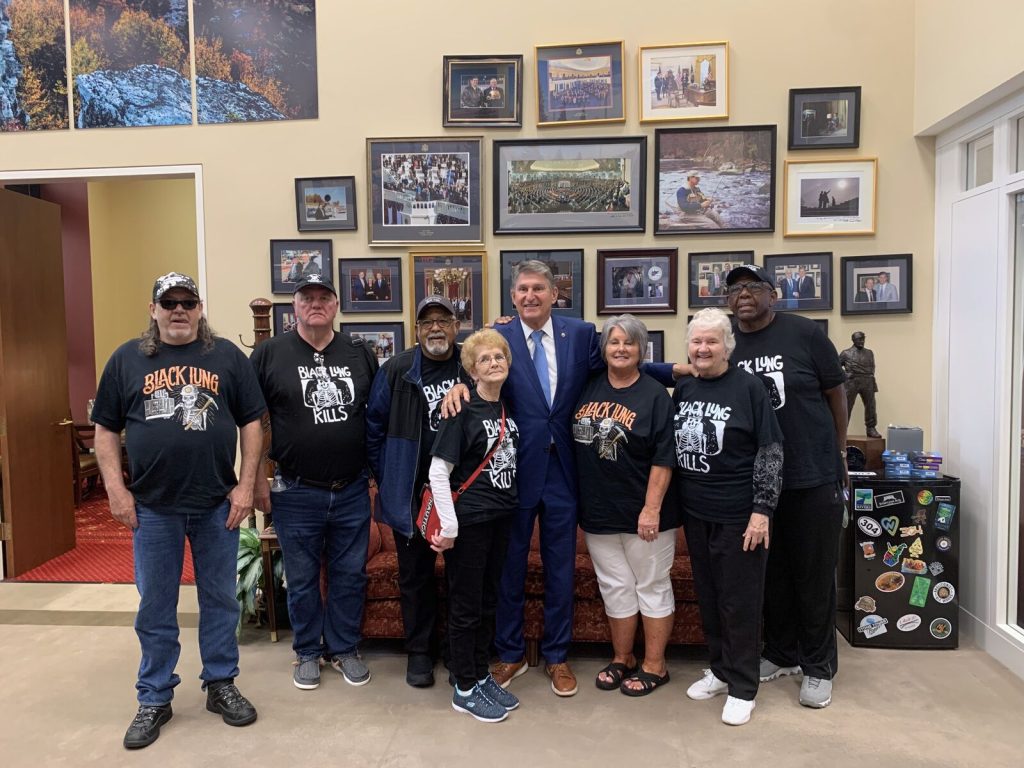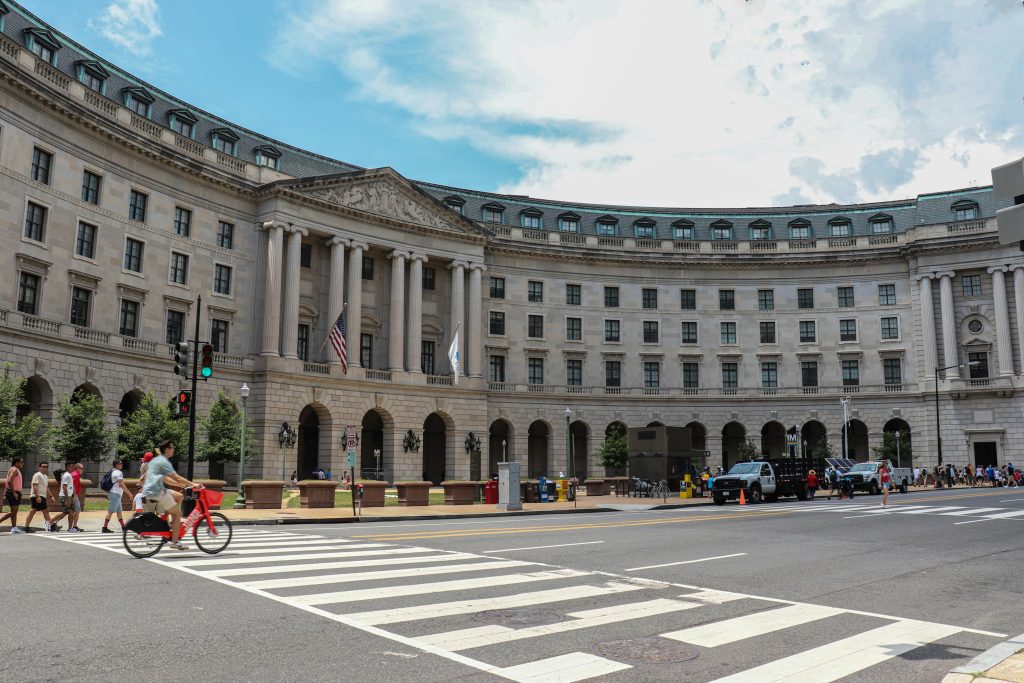Bestselling Author Leigh Ann Henion Talks About Her Latest Book
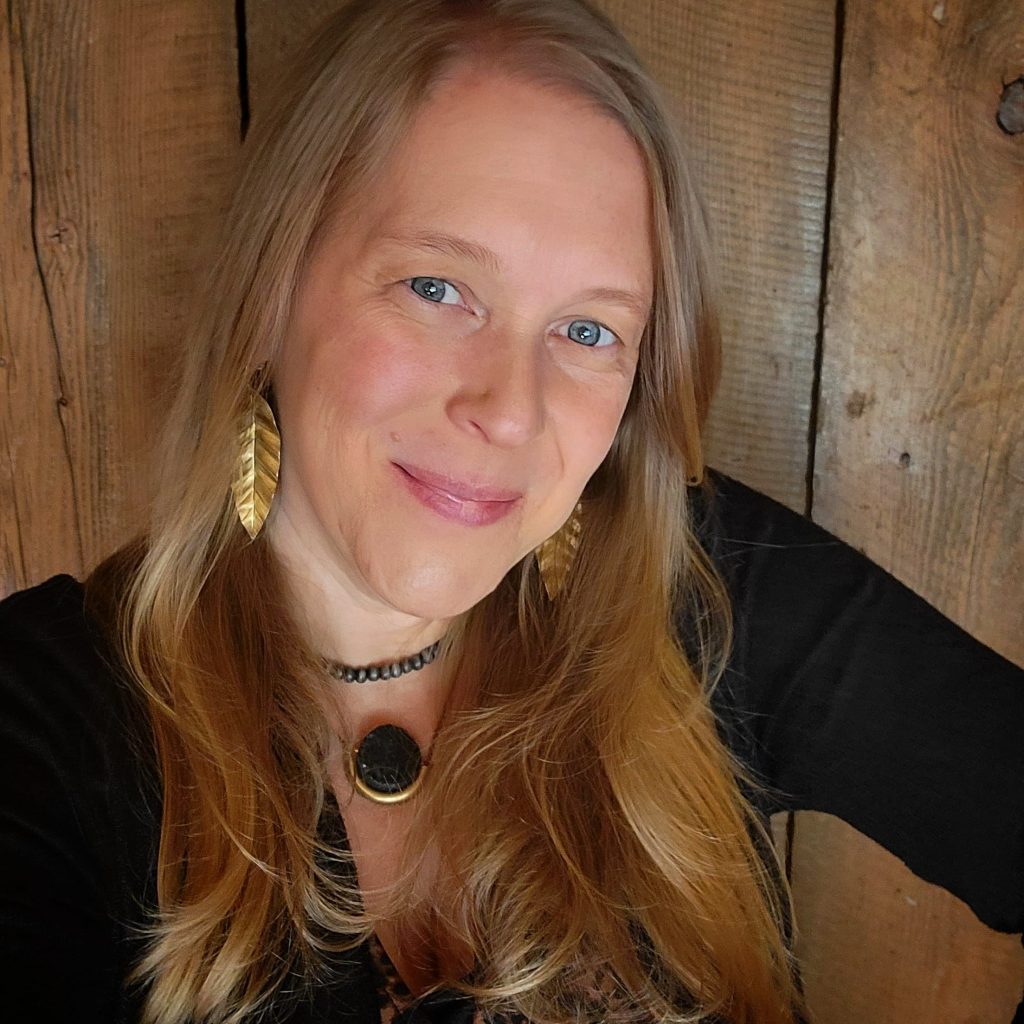
By Lara Howell
Appalachian Voices intern Lara Howell sat down with Leigh Ann Henion to discuss her new book, “Night Magic: Adventures Among Glowworms, Moon Gardens, and Other Marvels of the Dark.”
“Night Magic,” released September 2024, explores and celebrates the world of darkness. Henion invites readers to turn off their artificial lights and fully experience darkness and the creatures that inhabit it.
Henion is the New York Times bestselling author of “Phenomenal: A Hesitant Adventurer’s Search for Wonder in the Natural World.”
The Appalachian Voice: Can you tell me a little bit about your background and what led you to write a book about darkness?
Henion: The thing that most directly led me to write [“Night Magic”] was an article that I wrote about the synchronous fireflies of Great Smoky Mountains National Park for the Washington Post Magazine. I started getting a lot of messages from readers saying that the article had inspired them to turn their porch lights off more often. I was amazed that a story that I had told of my own experience had inspired people to take an actual action that reduced light pollution. … I started thinking, if I’ve learned this much from fireflies, what could I learn from salamanders and owls and moths and all these other creatures that depend on darkness? And so [“Night Magic”] started, really as a way of exploring these animals’ relationship to darkness, which is dwindling, and then also my own relationship to darkness and the human relationship to darkness, which has changed exponentially just within the last couple of generations.
The Appalachian Voice: How have you seen Appalachia change?
Henion: Well, I can’t really speak to the whole region, but I can speak of the Boone area, Watauga County, which is where I’ve lived for decades and a place I’ve been familiar with my entire life.
In the context of the book … I’ve noticed the encroachment of light pollution. If you look at light pollution maps, [you can kind of make out] Appalachia, like a little swath, a little dark oasis in the East Coast. But [light pollution is] closing in. When I pull up maps through the years, you can actually watch the lights encroaching on your home. That’s a really powerful experience, because even though I know that the night sky feels brighter than it did when I was younger, I can really see that it’s not my imagination, it’s something that is absolutely occurring. But because we have become alienated from night in a lot of ways, [light pollution] is a change that has really gone a little bit under the radar.
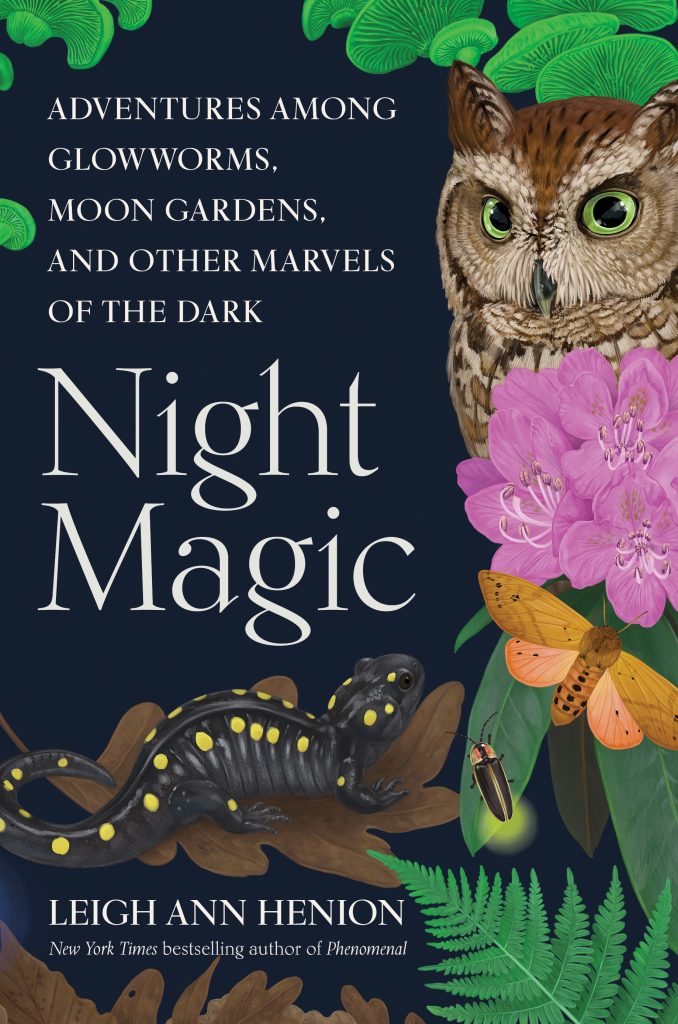
The Appalachian Voice: You take the reader through several interactions with creatures of the night, the book opens with a beautiful picture of fireflies. You talk about bats, moths, salamanders and glow worms. I’m wondering for you, which experience has stuck with you the most and why?
Henion: I feel like they’ve all stuck with me in different ways. For example, I would say the glow worms stuck with me because, starting out, they were kind of a total surprise to me. That is a theme that continually comes up [in the book]; a lot of what I seek to find, as it turns out, has been living right alongside me, including glow worms, which I found a small population of in my own neighborhood. They are completely underappreciated marvels.
Just to appreciate how much life is surrounding me even when I cannot see it, that’s been really powerful. … Every experience has stuck with me in different ways and they all have changed the way that I experience the world directly around me, my own everyday life. Or every-night life, I should say.
The Appalachian Voice: I’m wondering what you would have to say to someone who’s living in a more urban setting and isn’t able to get into that complete darkness.
Henion: It’s such a challenge to find darkness, and an increasingly difficult one. I think it can help to really start to consider your personal relationship to darkness, even in your own bedroom. Towards the end of the book I talk about how all these experiences really affected the way that I experience light and think about light. Once I started to notice all the lights on all the chargers, all the lights on all these devices in my bedroom, then I started to try to mitigate that, and create darkness in my space. … Close curtains, make your house as dark as possible. I think if you do that there’s room to be surprised.
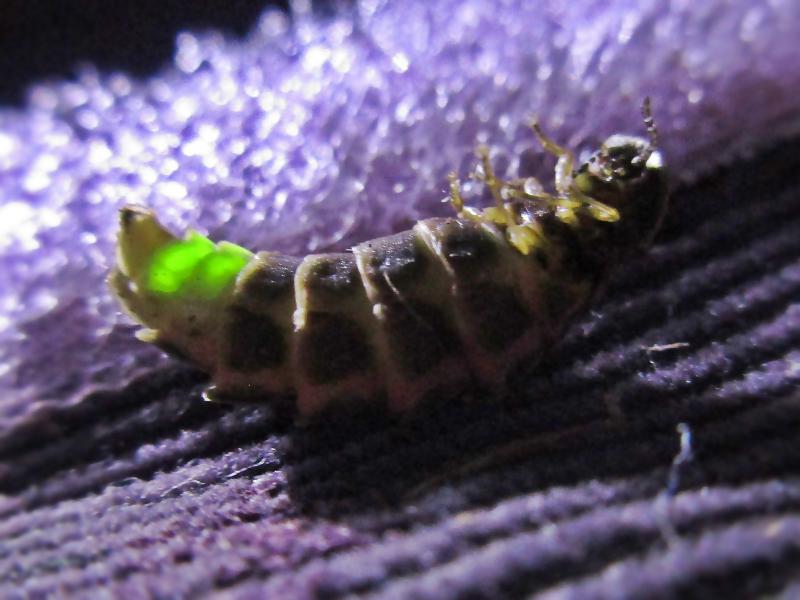
The Appalachian Voice: What is “weaponization of light”? Is it possible for humans to avoid it?
Henion: Weaponization of light is when we use light in ways that stand to do harm. We’re usually not intending to do harm. But, as explored in the book, that’s what happens pretty often in a variety of ways that are really under-discussed.
I feel like what’s really interesting about [the weaponization of light] is that this is an environmental challenge that we can deal with immediately; we can turn off the lights, which is great. But also I think it’s pretty amazing that light pollution is an environmental challenge that we can start to deal with by allowing ourselves to rest. It’s kind of a shocking realization.
As I talked about in the book, we have technology to solve so many issues, but we can’t quite find our way to implementing them. Light pollution is really not an issue of technology. It’s really a question of human temperance.
The Appalachian Voice: When reading your book, I noticed you leaned into the humanness of the story. To what extent did you do that with intentionality?
Henion: I don’t know if that was a conscious decision. I think that that is more a reflection of the way that I engage with the world … I once heard someone say, a writer has one story that they’re kind of trying to work on, one theme, for all their lives. One of the themes I feel that’s been a constant in my work is that humans are animals. In the process of working on this book, I go through all these species, but the last species in the book is humans. It’s embracing human as animal. I think a lot of our challenges arise from the denial of that, and also the idea that being an animal is somehow negative. Looking back on it, I’m glad that I did that because in the end it’s not one species versus another. It’s about human animals and how we interact with other animals. And we are the species that creates this artificial light that is disrupting the lives of pretty much all life forms on Earth.
The Appalachian Voice: What is that risk if we don’t embrace and protect these dark spaces?
Henion: The health of entire ecosystems, our own health, so many things are at risk. What I really hope is the overarching theme of Night Magic, and what is also at risk, is this beautiful, empowering relationship with night that our ancestors had until very, very recently.
One of the impactful things in the human chapter was my discovery of the little bit of research about how light and natural darkness has played into the development of human culture and religions, and things that we just we haven’t really thought about too much because it’s a fairly new phenomenon to live life in a in a world that’s lit at night.
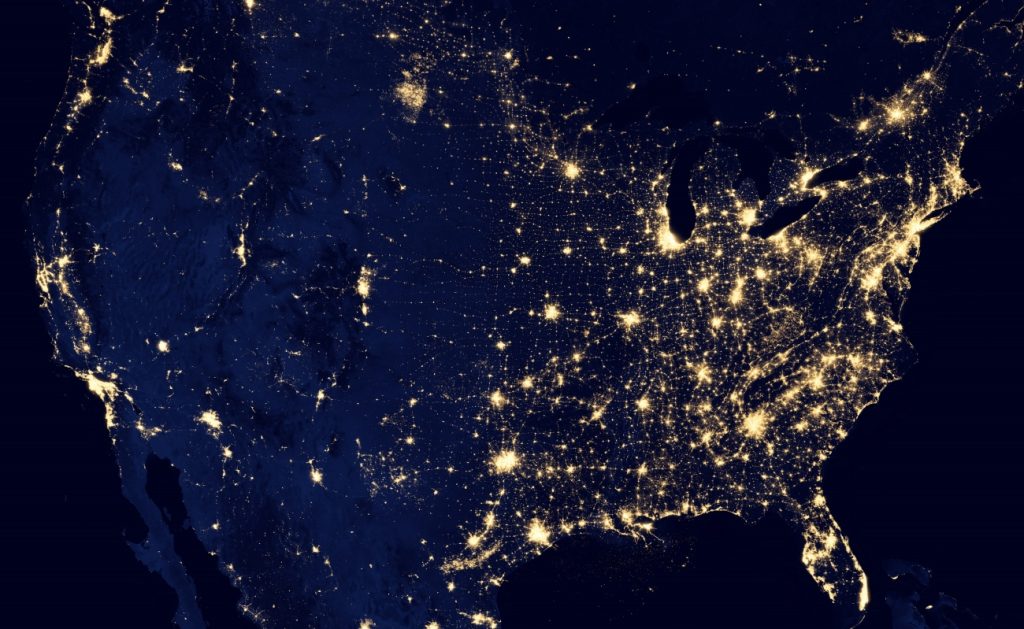
In addition to the ecological things that are at risk there’s also just this concept that we’re losing some of our human potential for imagination. In addition to all of the terrible, terrible losses of ecological health, what we stand to lose are wonders and things that are beyond our imagining. Darkness is so often representative of death and fear, but I think that when we can think of darkness as a place of possibility and hope, the unknown as a place of possibility and hope, it can really shift the way that we not only interact with darkness, but the way that we interact with and depend on light.
The Appalachian Voice: What do you hope that your readers will take away from Night Magic?
Henion: One of the things that I really hope people will take away from this book is a sense of curiosity. I would love to inspire people to turn off their porch lights. I hope people will learn some things that make them think “I didn’t know this. I’ve gotta tell somebody about this,” which is how I felt when I was discovering so many things that I write about. I hope people will think “Wow, I wonder what’s in my own yard?”
And also an interest in thinking about and experiencing darkness in a way that maybe they hadn’t before. Before I started this project, I’d never conceptualized that I had a relationship to darkness because I really didn’t have much of a relationship to darkness. I had an extreme relationship with light. Light, light, light, all the time. And so now I’m starting to find a little more balance in that relationship and I would love to inspire people to think about not only the natural wonders that are around them at night, but also their own relationship to light. I get into this in the human chapter: why is it that we have such a hard time letting go of light? It’s a countercultural narrative to embrace darkness in so many ways.
The Appalachian Voice: Throughout your researching and writing process, what is the most important thing you learned?
Henion: I so dearly loved all the species that I spent time with. And I think probably overall the lessons that they taught me kind of culminated in the concept that light is energy coming at me. Light is energy that I’m exposed to. Light is a stimulant. And every time I expose myself to artificial light, I am under the influence of a stimulant. After spending time in the darkness with all of these animals, I was able to absorb that reality in a different way.
Related Articles
Latest News

Leave a comment
Your email address will not be published. Required fields are marked *



